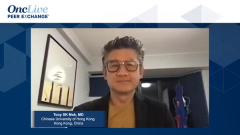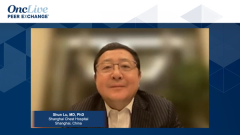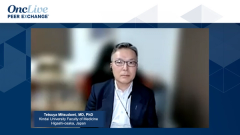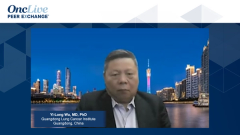
Is There a Role for Postoperative Radiotherapy in Stage III NSCLC?
A brief discussion on the use of postoperative radiotherapy in non–small cell lung cancer following resection.
Episodes in this series

Transcript:
Tony S.K. Mok, MD: For stage III, do you think the LungART had killed off all postoperative RT [radiation therapy] stage III disease with N2 disease? Or are you still practicing post-op RT for patients with resectable stage III disease?
Myung-Ju Ahn, MD: Recently at ESMO [European Society for Medical Oncology], N2 disease post-op radiation didn’t improve the survival. There’s a lot of debate among radiation oncologists. I don’t use post-op radiation. Drs Wu and Mitsudomi are surgeons, and if the surgeon thinks they have a high possibility of local recurrence when they do surgery, then we give the radiation. Other than that, we don’t routinely use the post-op radiation.
Yi-Long Wu, MD, PhD: That’s very interesting. In China, before the LungART, for N2B, if the patient received a completed recession, most surgeons don’t like using radiotherapy with complete recession. Radiologists always say, “This is the need: the postadjuvant radiotherapy.” But after LungART in China, more radiologists also say, “We don’t give the patient post-op, postadjuvant, radiotherapy because of N2B data.” That’s because in China, we have another trial led by the Chinese radiotherapy. They also showed a similar result to the LungART. There was no overall survival benefit from the post-radiotherapy for N2B data.
Tony S.K. Mok, MD: Is there any patient for whom you’d consider radiation? Like the margin positive or bulky? Would those change your mind? They’re a small percentage of stage III disease.
Yi-Long Wu, MD, PhD: Yes, it depends on the surgeon report. If they accompany resection, we don’t need. If there’s bad care, we say this is an uncertain resection or an incomplete resection. In this suggestion for uncertain or incomplete resection, we need the radiotherapy, but for the accompanying resection, no.
Tetsuya Mitsudomi, MD, PhD: I agree. One or 2 are indicated for radiation. In Japan, for N2 disease, we almost never give the radiation, even before the LungART study. JSCO [Japan Society of Clinical Oncology] is doing the post-radiation study using the more advanced technology of the radiation.
Tony S.K. Mok, MD: We’ve got a pretty good consensus that we will not endorse the use of a post-op RT except for patients with an incomplete resection of nonresidual disease.
Transcript edited for clarity.










































